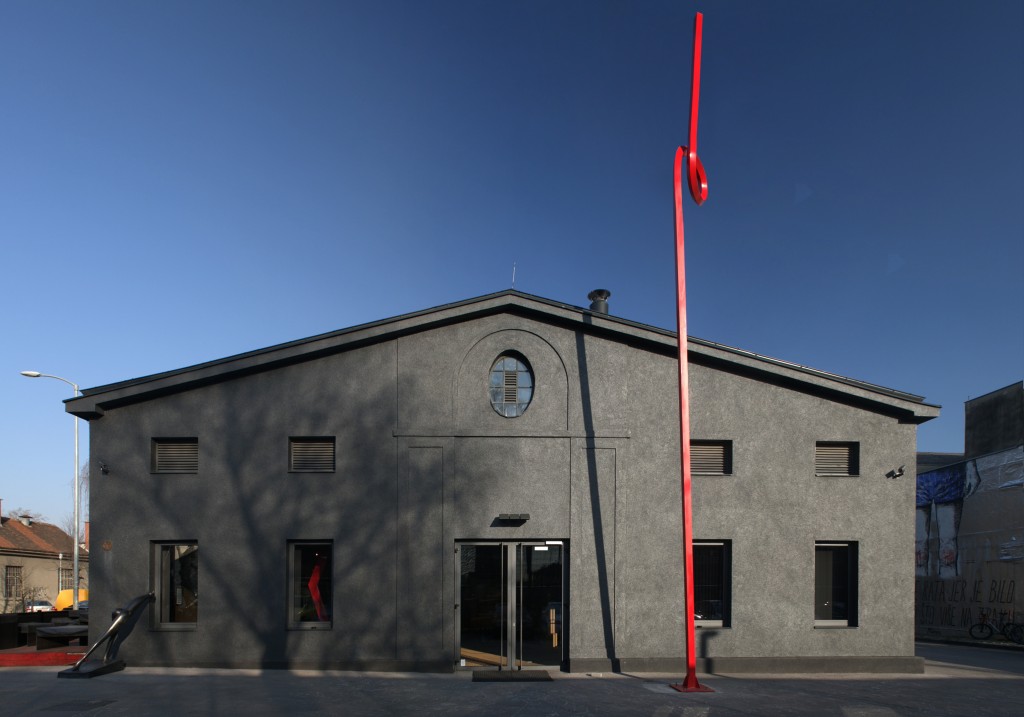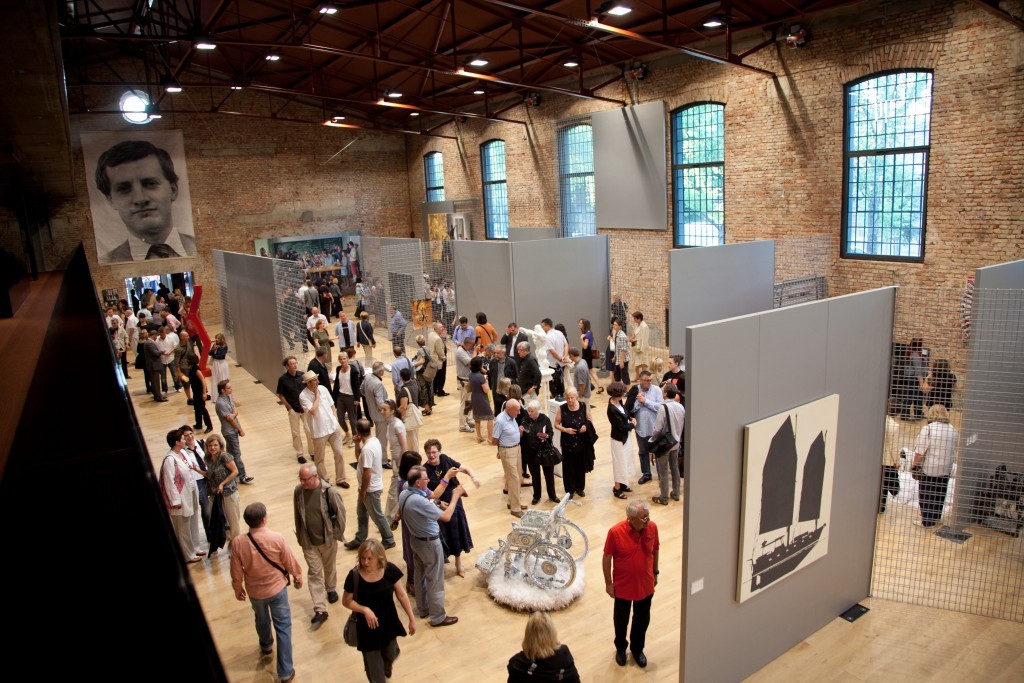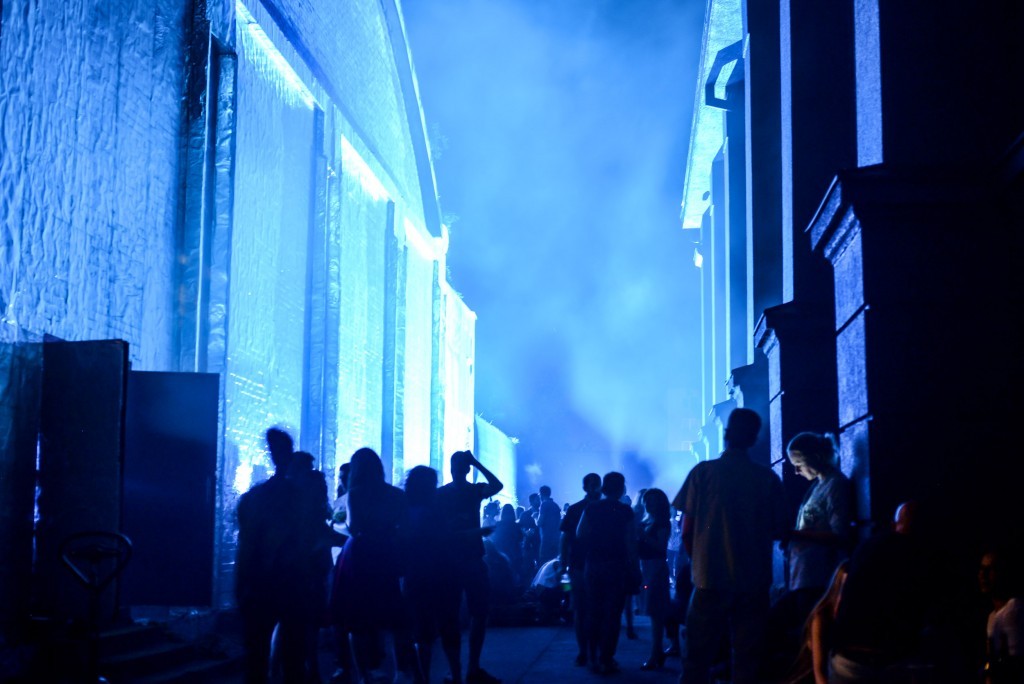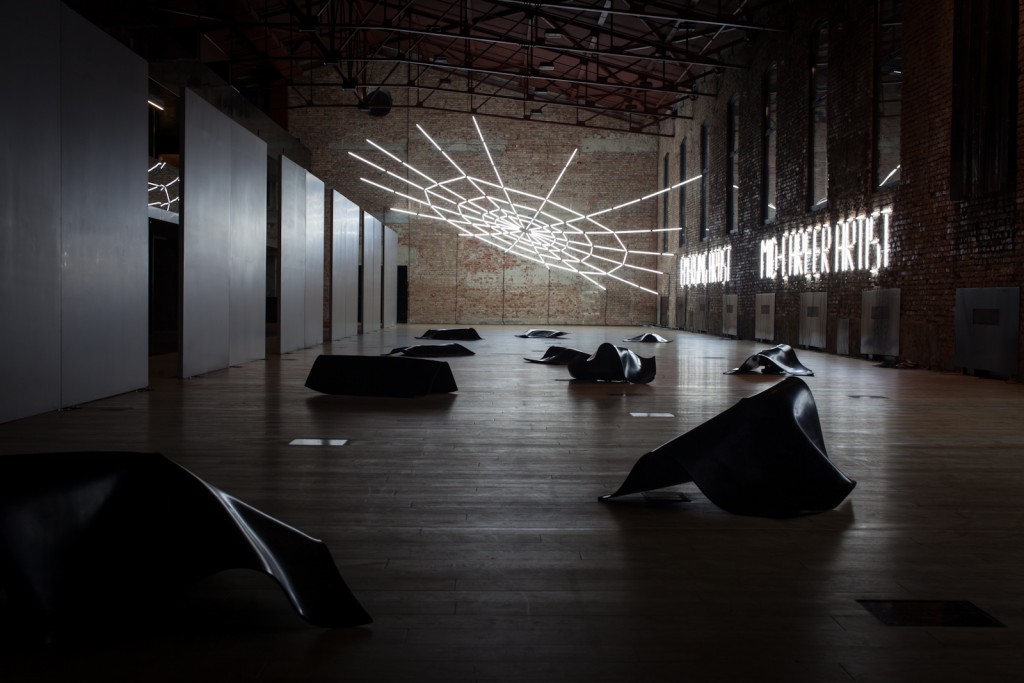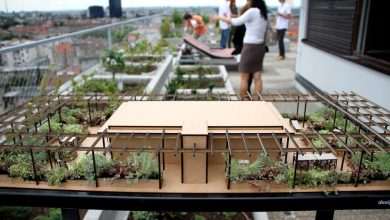Driving trough Prilaz baruna Filipovica one might not notice all the markets, housings and decaying structures of a former military station, brushing them of as usual background visuals of the driving experience trough the city. That is, until they pass a matte black structure standing out amidst the brown and gray colors of surrounding buildings.
The unusual color is just the first visual stimuli, drawing you in to find out what the place is all about. Lauba is something of a wild child of Zagreb’s gallery scene, promoting contemporary art as much as its own brand, starting from its location and visual identity that clashes with the rest of the scenery.
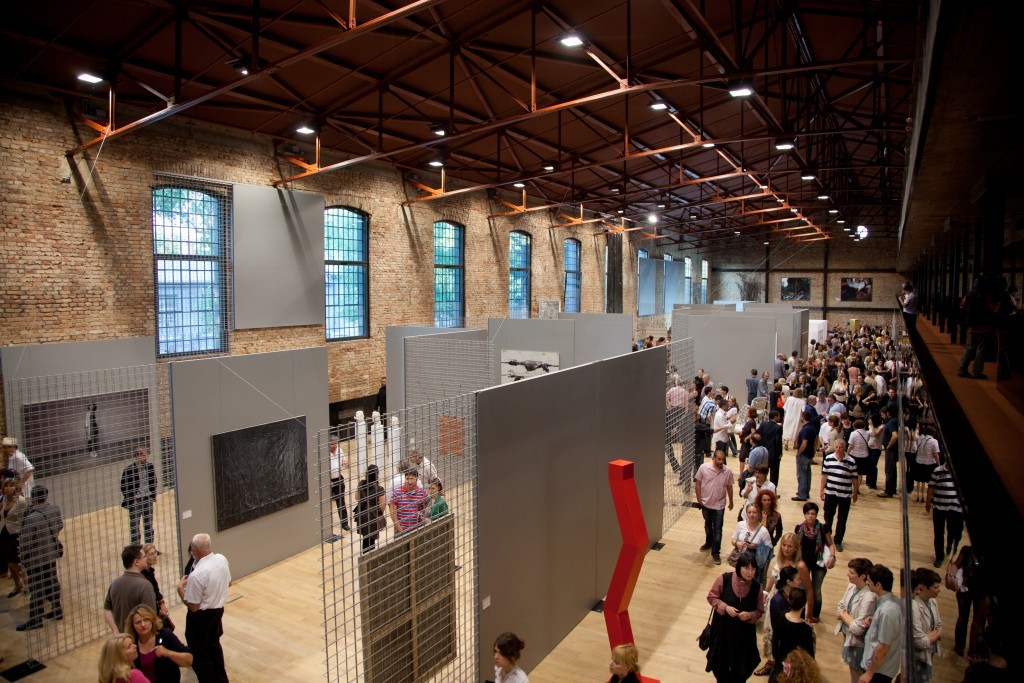
Lauba is the second privately owned museum in Zagreb that started as an exhibition space for Tomislav Klicko‘s private art collection and doubles as a non profit organization of the same name and an office space for his firm and a few other companies (most interesting one might be Jammat.fm, a radio station/independent record company overlooking the exhibition space). The collection (officially called Filip Trade Collection) gathers works from newer generations of contemporary artists, but the gallery and the NPO Lauba that designs the program are opened to other artists and collaborations, hosting a variety of contemporary exhibitions, performances and events.
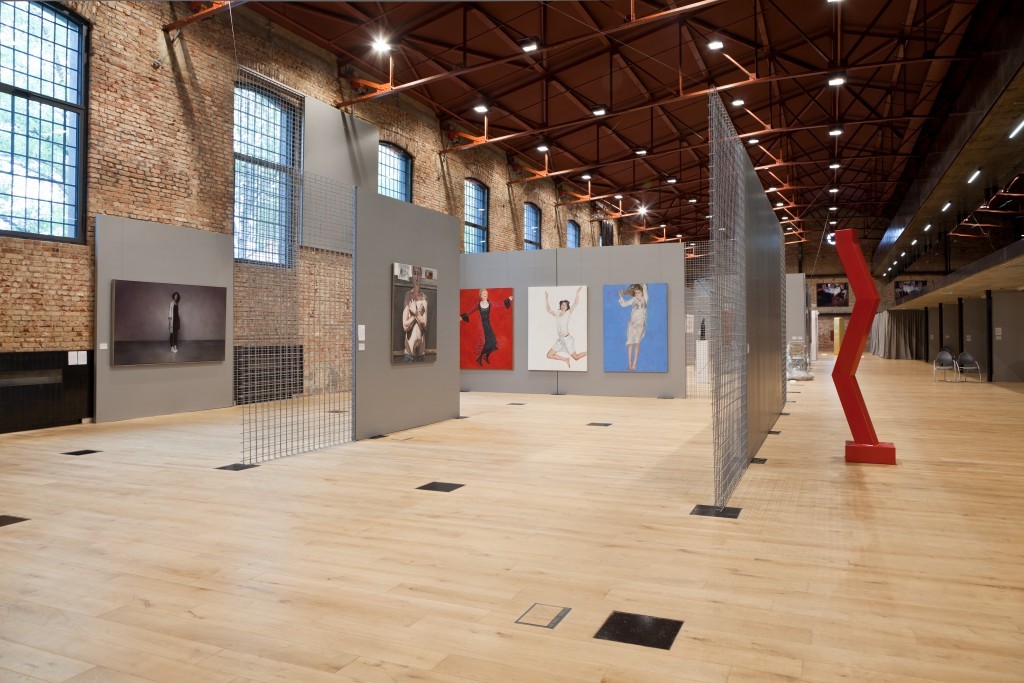
The building itself was build in 1910 and was used as a military stable. Later it turned into a textile factory that closed in the late 20th century leaving the space to the future of other military structures around it. It was re-purposed into an exhibition space in 2011, bringing people back to a part of the city that many have steered clear for years.
As of late, Lauba had also became a go to place for the hip crowd when it comes to parties. Hosting some in the gallery itself, but also using its backyard and lately an old abandoned hangar behind the building, Lauba started to brand itself as an important player in the club scene.
Gaining large media attention with such performances as Angela Merkel takes a dumb by the controversial band Let3 or No root, no fruit, a collaboration between Severina, one of the most famous pop singers in Croatia and an underground street artist OKO, Lauba manages to communicate to wider audiences that museum spaces do not need to be static, but places of lively and energetic discussions about life, art and modernity. It does so in adherence to its motto- a house for people and arts.

